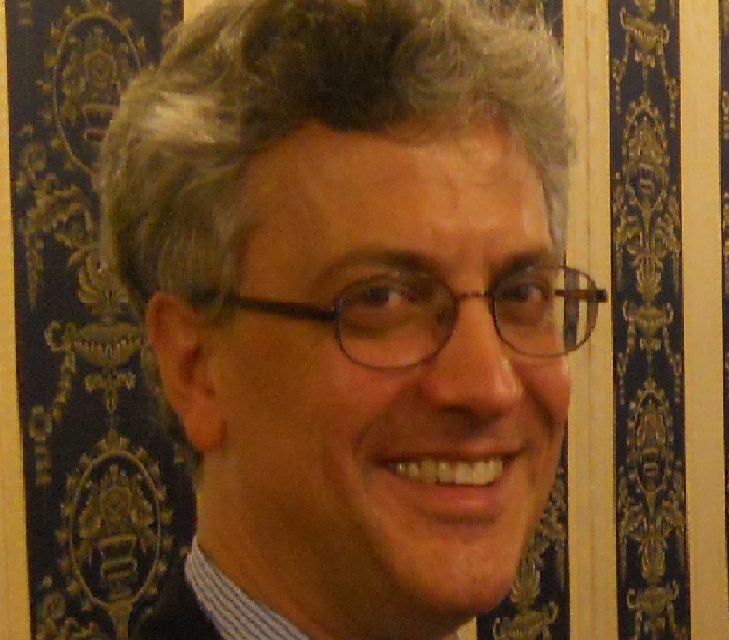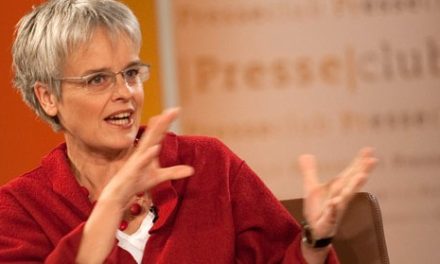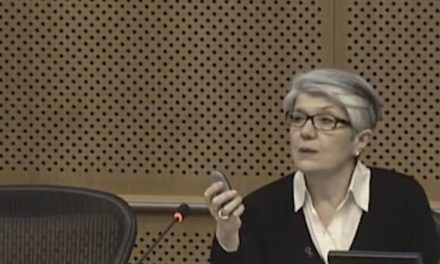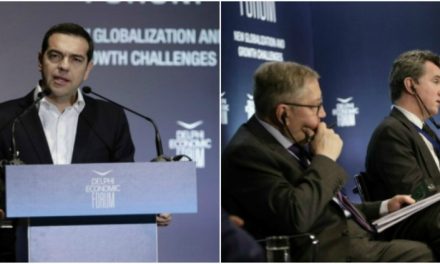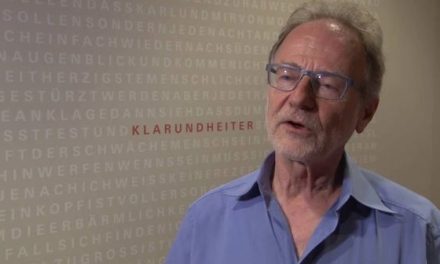Vincenzo Le Voci is the Secretary-General of the Club of Venice, the network of the communications directors from the European Union member states and institutions and from countries candidate to the EU membership. He has fulfilled this role since 2011. He is a longstanding European civil servant, having worked for the General Secretariat of the Council of the EU for 26 years. Since 2001 he is in the Directorate-General of Communication, where he is currently responsible for Transparency and Information Policy matters. Before joining the EU he worked 7 years for NATO in administration management and logistics, as a US Air Force – DOD official. He owns a Master degree in foreign languages and literatures and attended courses of modern history, European Integration and management in Belgium and at Maryland and MIT universities. He is giving lectures to universities and contributes articles and essays for communications books and magazines. In 2018 he was conferred by the University of Calabria and the Municipality of Ventotene (the home of Altiero Spinelli’s Manifesto) the Europa Prize in recognition of his high commitment to communication and information aimed at encouraging and strengthening public and diplomatic relations between government and institutional communicators.
Vincenzo Le Voci spoke* to Greek News Agenda about the Club of Venice, “government communication”, European elections, euro-skepticism and migration. Asked about the migration crisis he stated that “you cannot solve such big crises with one-shot intervention. You need to make sure you resolve contingencies, emergencies, but at the same time you need to be able to stop the occurrence at its roots”.
What exactly is Club of Venice, what is its purpose and what has it achieved so far?
The Club of Venice is the informal network of the communication directors and other senior communication specialists, founded in 1986. Basically this is the 33rd year of its activity. It was the term of the Italian presidency of the Council of the EU, and the Director General of the Press and Information Service of the Prime Minister had this idea to convene with his colleagues from the other countries of the EU to share information and best practice in the field of communication. The member-state countries were 12 at that time, including the newest members of the family: Greece, Spain and Portugal.
The Club consists of communication directors, senior communication executives and senior communication specialists. Its main objective is to strengthen cooperation and work in synergy, drawing inspiration from the respective plans and activities, to improve the way each country communicates with their own citizens about both national policies and the EU agenda.
How does Club de Venice cooperate with EU member states and Greece in particular?
We have a set plan of plenary meetings (twice annually) and thematic seminars (usually two or three times every year). The Club aims to bring these professionals on board and exchange information about what would be the best instruments for communication, what they are developing alone or in cooperation with other countries or institutions in order to see what models best to apply to their countries. So I would say that this is basically an exchange of ideas of specific partnership models, which could help increase cooperation as well asbenefits for citizens in both the communication of policies and citizen participation. Communication also facilitates the rapprochement of different players in the business.
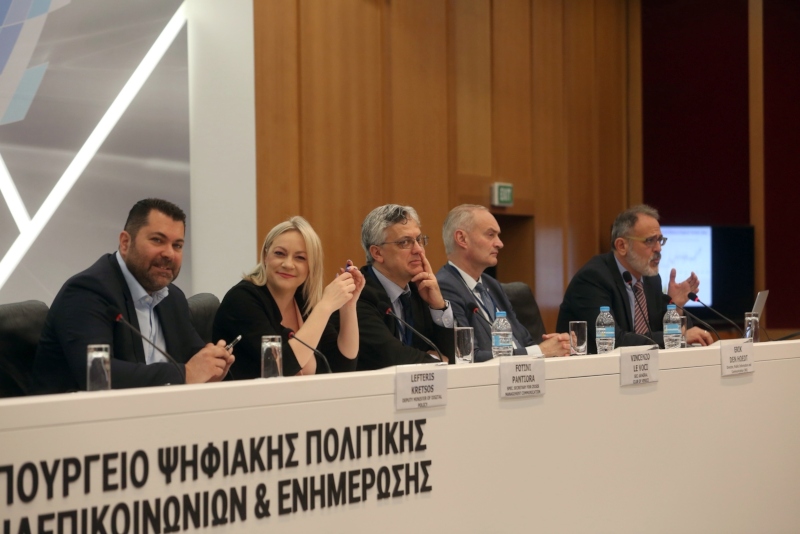 Club of Venice thematic seminar at the Ministry of Digital Policy, Telecommunications and Media, (Athens, GREECE 5-6/4/2019)
Club of Venice thematic seminar at the Ministry of Digital Policy, Telecommunications and Media, (Athens, GREECE 5-6/4/2019)
Could you elaborate on the term ‘government communication’?
Each country has different priorities and different political agendas, supposedly based on a perception of citizens’ expectations and needs. On that basis, ideally each government should prepare a short action plan of whatever needs to be done with regard to specific priority topics and of course these policies need to be communicated so that citizens understand what goes on, what the government wants to do to meet their expectations, and, to the degree possible, to involve citizens as individuals or as civil society from a wide spectrum. It’s not a one way action but an issue of cooperation, so that citizens feel represented in an appropriate way and feel that they have an input, with their view being truly taken into account.
You mentioned Greece. It’s clear that Greece as a Mediterranean country has certain type of prospects, future plans about how to develop its own economy, its wealth and other sectors like education, investments, possibilities to offer a better future to its people and specifically the younger generation as well as to set in motion initiatives that can help the country grow. After all, one of the main objectives of the EU is sharing, alleviate imbalances, and assist in areas where the economy is not adequately developed so that citizens are offered more opportunities for mobility, investments and to choose their own future here or somewhere else. The same philosophy applies to every country.
The future is undeniably digital. How does Club of Venice promote issues such as cyber security, transparency, and open data?
Since 2009, meaning ten years ago, the Club of Venice has been holding events to discuss what we call in general terms ‘capacity building’, which means enabling governments to communicate and to better identify the right instruments for the job. We all know that digital era is expanding rapidly. At the same time, we need to make sure that digital capabilities become available to everyone, so outreach needs to be assessed. We know that not every person in every periphery of a country can benefit from the digital era. So, first of all, we need to take into account all different kinds of existing communication tools and try to ensure inclusiveness, so that all categories of people are involved. We have developed a kind of doctrine to follow developments on social media and other new internet strategies especially launched by member states and institutions and we are trying to broaden the discussion about how to exchange best practices concerning multimedia projects that are promoted, either at European level or in specific countries. For this purpose, we organize specific seminars and workshops focused on web communication, open data and open government. “Open Government” constitutes a future opportunity for governments to be much closer to citizens, to offer better chances through open data portals and other web improvements to reuse the information in a better format. This could also be an incentive to create more job opportunities, to have better availability of the same data to more people, to enrich communication and definitely to reinforce outreach and participation. We will continue to do this in our plenary and in our seminar events. Last but not the least, regarding cyber-threats, we need to keep the discussion alive on this subject and we are doing this in the context of counter disinformation approaches at European, national or multinational, cross- border level.
On the road to European elections, the agenda of most EU parties seems to focus on national issues -such as pension cuts rather than on European ones. As a result, European elections end up being a vote of confidence to national governments. How can the EU effectively communicate the message that European elections should be considered as such and not as national elections?
This has always been the big issue. The EU has been there since the fifties. However, there has always been a huge difficulty in bringing the European agenda into the national agenda. This is a kind of historical issue; a historical problem because governments always consider that discussing less popular issues would affect their own national political image. So very often in the past, the present and maybe also the future, many governments will continue to hesitate in bringing into the agenda items that are difficult or controversial. It’s important, though, to note that this is not done as some kind of political depreciation of the European agenda. It’s only domestic political pragmatism. And I don’t think that this should be considered a controversial issue to which we cannot find a solution. Take for example the three main institutions, i.e. the European Parliament, the European Commission and the Council of the European Union. When people are represented in each of these institutions they need to be able to connect with their own respective authorities which are in the countries. For instance a member of the European Parliament should be sure that, through his constituencies and through his connection with the European Parliament, she/he is able to convey the message and push the European agenda that it is on the table. They have to spend all their energy in doing this, because otherwise it will be difficult also for the new generations to understand what is going on. And whilst it is true that, through the internet, youngsters can be quickly acquainted and understand what is happening, it is quite a different feeling having someone representing your country in such an institution. Having this person talk to you and provide evidence of what goes on in the EU, show his involvement, the objectives and the challenges, you feel a little bit more responsible, engaged. And only then you can see that kind of call coming for your support. I’m talking about the European parliamentary representatives, but it’s exactly the same with the European Commission. Once the Commissioner is elected, he/she by definition becomes neutral. We are not talking about an Italian or a Greek commissioner, but someone representing the EU for a specific policy – and that person is responsible for all of Europe. And when taking part in any debate or event, he/she needs to speak concretely, showing as much as possible his/her knowledge and the capacity to grasp the problem – I mean, being well prepared in relation to the expectations of that country. You cannot handle an event facing citizens and talk in abstract about general values because everybody knows values such as democracy, solidarity and so on. You need to connect with facts, connect with the reality. And the same goes for the Council. The Council is basically governments, governments who have their own representatives referring to their own Ministry of European Affairs or Foreign Affairs or Ministry for a specific policy.. They need to be able to convey clear and inclusive messages and enable their citizens to understand and feel involved in the public debate. In other words, when they are called at national level to discuss in public and address audiences, as well as when they feed digitally their own platform, they need to be clear about what is happening and communicate the position of the government so that people understand what the challenges are.
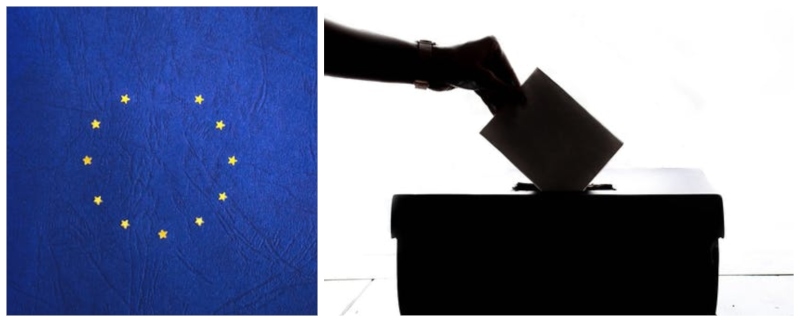 (pexels.com)
(pexels.com)
Greece has experienced various crises, such as the economic and the refugee crisis. Is Greece’s foreign communication policy sufficiently addressing these issues?
It’s true that you had one crisis after the other. But the crises have never been a Greek crisis; they have always been European crises. The thing is that communication policy needs to be revisited and reassessed and we need to go back to the roots of each and every crisis, understand why it happened, who the people or organizations responsible for the crisis are, where the problem comes from. Once you identify this, once the government clearly identifies the causes, you need to find what the possible means to solve the crisis are and what the necessary resources are. Once you identify the roots, if you identify the objectivesand then understand who could be the potential players that could help us solve the problem internally and externally at EU level, then you basically need to set up a plan. Without planning you cannot solve any crisis, not even help through communication, because you cannot solve such big crises with one-shot intervention. You need to make sure you resolve contingencies, emergencies, but at the same time you need to be able to stop the occurrence at its roots. It may be about migration, it may be about the economy, it may be another issue that that is even more complicated and dangerous such as terrorism. You need to prepare yourself, to prevent, to monitor, because if you don’t do that you will never be able to attack and counter the phenomenon at its root. You need to build a solid platform and plan around this; otherwise the problem will never be solved definitely.
Euroscepticism is rising given recent developments such as the refugee crisis or Brexit. Additionally, issues such as migration are dealt with at a national rather than at European level. What tools does the EU have in order to address this?
The tools are of a different nature. You have, first of all, monitoring tools of public opinion, such as Eurobarometer, but you also have other relevant surveys which have been run by private organizations and by national institutes. Thus a communicator needs to know how to analyze all of these, without necessarily trusting only one of these instruments in isolation, but several of them combined: you need to cross check, to come out with a neutral and objective idea about what public opinion expects and how it perceives Europe. Then of course you cannot deny that, in several countries, attitudes towards the EU have recently changed because of the several crises, but I think also because the old generation of real believers, the ones who founded the EU, have gone. This generation does not exist anymore and unfortunately there was no continuity in a way, we were not essentially able to transmit these principles to the new generation. This is one thing that’s absolutely necessary because it’s there, whether you see people’s euro-skepticism or not. The problem also concerns governments, not only people, some governments that were always pro-European and have lost their impetus. Europe has lost pro-European leaders of caliber and I’m not talking about the ones who founded Europe but about people like, for instance one person who really stays in my mind forever is Vaclav Havel, the former Check Republic President. He was not even a politician, he was a man of culture, of theatre, of arts and after being imprisoned for his ideas he became president of his country; like Lech Walesa, who is still alive but not in politics any more. So these were people who could pass the message to the younger generations, who could communicate what is happening. To deal with euro-skepticism, you have to trust the right people to counter it and of course you have to hope that governments don’t take extreme positions, because if a government is officially against Europe then it becomes an issue. You need to find other possibilities to inform public opinion, use all the different communication tools to convey the message, make sure that you can balance the message – that you convey the real facts and the real values. Then it will be up to the citizens to decide. We all know what is happening in some countries that the EU is closely monitoring. There is a kind of drift basically towards a certain non-EU line. And there are legitimate means also to recall these countries, like the European Parliament has been recently doing, to certain values that were subscribed within the so-called “acquis communautaires” as pre-condition to acquire EU membership.
Does the EU have a common policy regarding migration? If so, how is it communicated?
EU has a specific policy about certain issues, like the Dublin convention. But we had to deal with a huge phenomenon like the migration waves in the last three years. Europe clearly was not prepared to face with a phenomenon of such wide dimensions. But at the same time I have to say that progress has been made. There was a migration package, there were agreements made with other countries and there are operations being run in the Mediterranean to monitor the process. This is a way just to monitor what is going on and try facing the problem knowing all its features. First of all, identify where the contingencies are, where the migration flows continue to remain. Then you have the multiple aspects of the refugee issue and the huge issue of fighting the phenomenon in its roots. That is a sort of multi-action plan that Europe has put together. It is not easy, because the phenomenon has massive components and of course migration is not the only priority we have. Meanwhile, you have to work for the EU citizens in terms of offering them better job perspectives, employment and investments, to relaunch the economy and to recover, given that in some areas there is still difficulty in creating the framework for people to stay in their own country, to avoid the brain drain and so on. So the priorities are numerous as regards migration and they are to be handled while taking care of the other national priorities of a strong social connotation. I think there are certainly a lot of things going on and the European migration agenda was the mix of knowledge and action in all different aspects of the phenomenon – through the European Council and the Council of Foreign Affairs the momentum is there. We need to convey all these actions into one single package; we need to see if people can understand and appreciate the EU’s actions. And of course adjust each and every part of this plan to all the needs depending on how the issue is progressing. Because again you need to form alliances basically with the countries that the phenomenon derives from, you need to monitor what is happening now. In the Mediterranean for instance, you need to know what to do with people that are already here. It’s really a huge issue, which of course includes the humanitarian aspect strictly linked to contingency, and I believe that responding to the different sides of the question is already a good step, and recalling from time to time the principal values determining how this job must be done, together in alliance, this is also the other important issue, without which Europe would not have been able to handle the problem for a long time.
*Interview by Christina Fiorentzi
Read also: Kevin Featherstone on LSE’s Hellenic Observatory and the concept of ‘union’ in the EU

